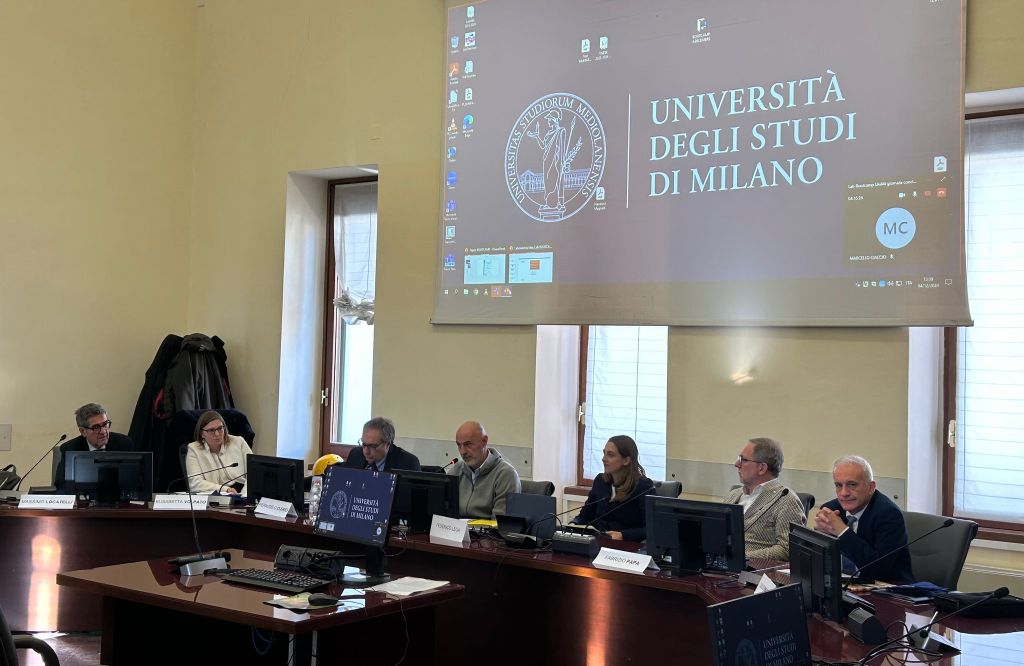MILAN (ITALPRESS) – To offer a training and experiential path to professionals in Laboratory Medicine with high potential towards managerial positions. This was the goal of Lab Bootcamp, the training program carried out by HEAD – Center for Research and Higher Education in Health Administration at the University of Milan, with the nonconditional contribution of Roche Diagnostics Italia and dedicated to increasing the managerial and leadership skills of professionals in the field. The goal is to enhance the key role that the laboratory has in current and future healthcare: a healthcare that faces important challenges to make the diagnostic-therapeutic and care pathway more equitable and sustainable.The Lab Bootcamp initiative, sponsored by FISMELAB (Federation of Italian Scientific Societies Laboratory Medicine), AMCLI (Association of Italian Clinical Microbiologists), SIBioC (Italian Society of Clinical Biochemistry and Clinical Molecular Biology), SIPMeL (Italian Society of Clinical Pathology and Laboratory Medicine) and SIMTI (Italian Society of Transfusion Medicine and Immunohematology), involved about 40 professionals in the field of Laboratory Medicine from all over Italy in a course that combined classroom and hands-on training activities, based on the realities of their respective health care companies.After three days of training, divided between in-person and virtual sessions, the laboratory professionals developed strategic projects useful for putting the acquired skills into practice. The course concluded yesterday with the sharing and discussion of the case studies, which was followed by the presentation ceremony of the certificates of participation. “The Lab Bootcamp was a training and experiential path shared and co-constructed in the classroom with the participants and an important opportunity to delve into the dynamics and challenges that Laboratory Medicine and its protagonists face in the contemporary NHS and healthcare companies. Production quality and efficiency, performance and outcome measures, economic sustainability, professional development, attractiveness of the profession, and technological evolution are some of the many challenges that laboratory managers and professionals are facing,” said Federico Lega, Full Professor of Health Management at the University of Milan, Center for Research and Higher Education in Health Administration (HEAD). They then worked in depth in the classroom on the implications affecting the organizational roles of Laboratory Medicine professionals, who are increasingly involved in processes of transformation of service models, development of clinical governance activities, and optimization of production processes. Participants simultaneously had the opportunity to strengthen their skills in leadership, direction and organization of work, leading a team of collaborators and building a sense of teamwork. “As highlighted by the Presidents of the Scientific Societies who spoke at the closing ceremony, the Lab Bootcamp pathway was of great value to Laboratory Medicine professionals also with a view to identifying new opportunities in favor of the sustainability of the Health System.”The Laboratory Professional has always been called upon to play a managerial role as well, having in his activities the declination of tender specifications, the respect of the contractual rights-duties of his collaborators, the management of Quality, the adherence to Privacy regulations, the relationships with local and central Institutions and the compliance with the current regulations on Budget – explained Pierangelo Clerici, President AMCLI and FISMELAB – It seems clear that only the constant updating and increase in managerial skills can be decisive in the complete and correct performance of one’s profession, in order to best express what is required and expected by the Institutions and the Citizen-Patient.””Participants had the opportunity to learn about the importance of the governance of a clinical laboratory in relation to the relevance of Laboratory Medicine today, which represents one of the fundamental pillars of the Health System of the third millennium,” commented Marcello Ciaccio, SIBioC President. “It supports and guides clinicians throughout the diagnostic-therapeutic-assistance pathway, from screening, to diagnosis, differential diagnosis, prognosis and monitoring of a pathology. Therefore, it contributes significantly to improving patient outcomes, from reducing healthcare costs to optimizing resources. Full recognition of the value of Laboratory Medicine requires its effective integration into institutional health care decision-making processes and strategies, which must be the heritage of those responsible for leading a laboratory. Representing a complex reality, the laboratory requires high communication skills.””In the current reference context, based on a progressive shortage of resources and an increase in artificial intelligence-based solutions, it becomes necessary to maintain and expand skills, to develop leadership adaptable to continuous changes, with agile strategies that prioritize interactive and cross-functional team working, interfacing with all stakeholders,” said Fabrizio Papa, SIPMeL President – Tailor-made training programs and delivered in particular to young professionals in the field are the best investment to accompany, even anticipate, innovation and face future challenges in healthcare.Francesco Fiorin, SIMTI President, commented, “In the field of Transfusion Medicine, leadership is expressed in the ability to guide and positively influence the practices of donation, processing and clinical use of blood components also in light of the new challenges posed by the European Regulation on Substances of Human Origin (SoHO) that will see the Transfusion System engaged in the coming years.”The Roche Group’s Diagnostics division is committed to developing and integrating solutions that can make a valuable contribution to transforming the way diseases can be prevented, diagnosed and monitored, working alongside professionals in the field to enhance the key role of Laboratory Medicine.Ramiro Pena, Healthcare Development Director Roche Diagnostics Italia, concluded, “Investing in the development of Health System competencies, offering training paths that adequately prepare to manage the growing complexity of the system, is an essential investment to be made today to ensure healthcare of excellence for tomorrow. Supporting initiatives such as Lab Bootcamp is a concrete example of our willingness to help build a more sustainable System that is ready to respond to present and future health challenges.”
– photo press office Sec Newgate for Roche -(ITALPRESS).

